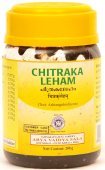Varanga, Varāṅga, Vara-anga, Varamga: 15 definitions
Introduction:
Varanga means something in Hinduism, Sanskrit, Marathi, biology. If you want to know the exact meaning, history, etymology or English translation of this term then check out the descriptions on this page. Add your comment or reference to a book if you want to contribute to this summary article.
Varanga has 15 English definitions available.
Languages of India and abroad
Sanskrit dictionary
[Deutsch Wörterbuch]
Source: Cologne Digital Sanskrit Dictionaries: Böhtlingk and Roth Grosses Petersburger WörterbuchVarāṅga (वराङ्ग):—1. (4. vara + 3. aṅga) n.
1) der schönste Körpertheil: a) Kopf [Amarakoṣa 3, 4, 3, 27.] [Hemacandra’s Abhidhānacintāmaṇi 567.] [Anekārthasaṃgraha 3, 131.] [Medinīkoṣa g. 44.] [Rāmāyaṇa 1, 66, 10.] [VARĀH.] [BṚH. 1, 4.] — b) die weibliche Scham [Amarakoṣa] [Trikāṇḍaśeṣa 2, 6, 21] (vavāṅga fälschlich gedr.). [Hemacandra’s Abhidhānacintāmaṇi 609.] [Hemacandra’s Anekārthasaṃgraha] [Medinīkoṣa] [Halāyudha.2,359.] [Kathāsaritsāgara 17,144. 147. 28,177.] [Oxforder Handschriften 85,b,46.] —
2) Hauptstück [Varāhamihira’s Bṛhajjātaka S. 47, 2.]
--- OR ---
Varāṅga (वराङ्ग):—2. (wie eben)
1) adj. in allen seinen Theilen schön: rūpopeta als Erklärung von siṃhasaṃhanana [Amarakoṣa 3, 1, 12.] —
2) m. a) Elephant [Trikāṇḍaśeṣa 2, 8, 34. 3, 3, 69.] [Hemacandra’s Anekārthasaṃgraha 3, 131.] [Medinīkoṣa g. 44.] — b) Bez. des Nakṣatra- Jahres von 324 Tagen [WEBER, Nakṣ. 2, 281.] — c) Bez. Viṣṇu’s [Śabdakalpadruma] nach [VIṢṆU][?’s SAHASRANĀMASTOTRA.] —
3) f. ī a) Gelbwurz [Rājanirghaṇṭa im Śabdakalpadruma] — b) Nomen proprium einer Tochter Dṛṣadvant’s und Gattin Saṃyāti’s [Mahābhārata 1, 3767.] —
4) n. a) grober Zimmt, Kassiarinde oder dgl. [Trikāṇḍaśeṣa 3, 3, 69.] [Hemacandra’s Anekārthasaṃgraha] [Medinīkoṣa] — b) Sauerampfer v. l. in [Ratnamālā] nach [Śabdakalpadruma] u. varāṅgin .
--- OR ---
Vāraṅga (वारङ्ग):—[Uṇādisūtra 1, 121.] m. Heft, Griff [UJJVAL.] [Suśruta 1, 24, 10. 101, 1. 2.] [VĀGBH. 25, 14.]
Sanskrit, also spelled संस्कृतम् (saṃskṛtam), is an ancient language of India commonly seen as the grandmother of the Indo-European language family (even English!). Closely allied with Prakrit and Pali, Sanskrit is more exhaustive in both grammar and terms and has the most extensive collection of literature in the world, greatly surpassing its sister-languages Greek and Latin.
See also (Relevant definitions)
Starts with: Varamgane, Varangaka, Varangala, Varangalanem, Varangam, Varangana, Varangarupopeta, Varankakam, Varankanai.
Ends with: Ahavaramga, Ambavaranga, Cavaranga, Navaranga, Pavaramga, Pravaranga, Purvaranga, Purvvaranga, Shalyavaranga, Svaranga.
Full-text: Varangaka, Varangarupopeta, Shalyavaranga, Vavanga, Varangin, Varangi, Varang, Taranga, Tarapura.
Relevant text
Search found 8 books and stories containing Varanga, Varāṅga, Vara-anga, Varamga, Varaṅga, Vāraṅga, Vara-aṅga, Varāṃga, Varānga; (plurals include: Varangas, Varāṅgas, angas, Varamgas, Varaṅgas, Vāraṅgas, aṅgas, Varāṃgas, Varāngas). You can also click to the full overview containing English textual excerpts. Below are direct links for the most relevant articles:
Chaitanya Bhagavata (by Bhumipati Dāsa)
Verse 1.15.148-149 < [Chapter 15 - Marriage with Śrī Viṣṇupriyā]
Atharvaveda and Charaka Samhita (by Laxmi Maji)
Classification of Drugs in the Caraka-Saṃhitā < [Chapter 4 - Diseases and Remedial measures (described in Caraka-saṃhitā)]
1b. Study of Fever (Jvara) in the Caraka-Saṃhita < [Chapter 5 - Diseases and Remedies in Atharvaveda and Caraka-Saṃhitā]
Sushruta Samhita, Volume 5: Kalpasthana (by Kaviraj Kunja Lal Bhishagratna)
The Garuda Purana (by Manmatha Nath Dutt)
Chapter CCXXVII - Different names of the Ayurvedic Drugs < [Dhanvantari Samhita]
Amarakoshodghatana of Kshirasvamin (study) (by A. Yamuna Devi)
The Shiva Purana (by J. L. Shastri)
Chapter 35 - Śiva-sahasranāma: the thousand names of Śiva < [Section 4 - Koṭirudra-Saṃhitā]
Related products
